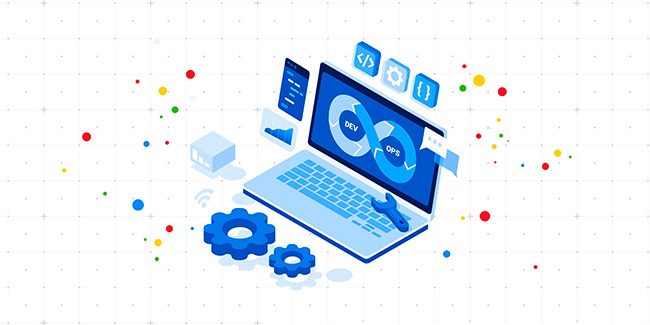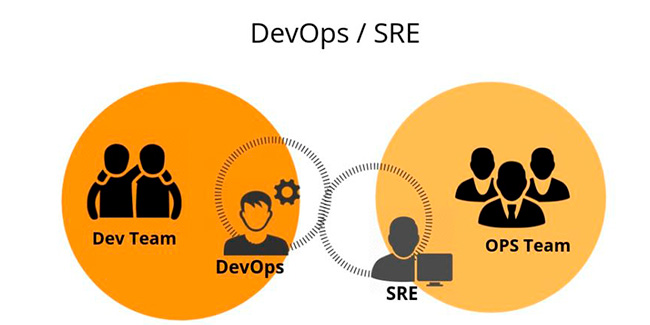

DevOps and SRE: Everything you need to know


Site Reliability Engineering and DevOps, at first glance, seem similar, but if we take a closer look, they differ! SRE and DevOps both stand for security, resilience, and efficiency. The difference is that DevOps stands for Development Operations, while SRE stands for Site Reliability Engineering. Site Reliability Engineering and DevOps teams work together to manage incidents well and keep customers happy while avoiding big problems for the company. Even though they are slightly different, their role in IT success is crucial.
DevOps and SRE – really different?
DevOps and SRE responsibilities may differ throughout companies, but what connects them is development and production. DevOps is a set of strategies and practices that are aimed at automation and process integration. This way, the development and operations teams can build, test and ensure faster release. DevOps focuses on software development and deployment, while SRE focuses on maintaining application availability and performance. SRE is about applying the principles of software engineering to issues in infrastructure and operations, often with the input of developers. At the same time, poor collaboration and communication between these teams may cause operations problems. Now, the difference has become clear.
DevOps and SRE: Who Fits the Bill?
When it comes to DevOps and Site Reliability Engineering, it’s important to understand not only the differences between them but also who is suitable for these roles. Engineers with development or operations backgrounds would be suitable for DevOps. With minimal code to work and a simple environment, developers can take on DevOps tasks without losing too much development time.
On the contrary, the role of SRE goes to a developer who created an application and is responsible for its reliability. So, SRE is about ensuring the high availability, reliability and resilience of production systems and services.
Main differences
While SRE was developed in Google and is a specific job role for maintaining and building systems, DevOps is a set of principles and strategies and teamwork between operations and product development throughout a project’s life cycle. Now, let’s take a look at some specific responsibilities of DevOps and SRE.
DevOps is about:
- infrastructure and automation;
- development and deployment;
- implementing CI/CD pipelines;
- variety of software development roles.
SRE is about:
- post-deployment operations and maintenance;
- monitoring errors and availability;
- attention to change management;
- designing, testing and implementing disaster recovery plans;
- software development.
Collaboration in Action
Despite their differences, they work together to monitor their respective and when incidents happen.
Also, they work together to review incidents and figure out the cause to prevent them from happening in the future. SRE and DevOps also can collaborate by using shared project management tools and provide stakeholders with a view of project status or incidents in IT setup.
Introduction appreciates and encourages all roles and strategies involved in IT development processes. Even though their approaches differ, borrowing shared practices are still possible. DevOps arose from operations, while SRE practices were initially crafted by developers at Google. Initially, SRE was a job role, and DevOps was an approach. But now, DevOps is becoming the standard, and a maturity model is emerging. Let’s see how things unfold in the future.
More Articles

Remote work strategies for team collaboration in tech Remote work strategies for team collaboration in tech
In the past 5 years, remote work has become increasingly common among businesses worldwide. Particularly in the IT sector, remote work practices have surged, with many companies using this flexible practice for team collaboration.

Anticipating Software Development Trends in 2024 Anticipating Software Development Trends in 2024
As we embark on a new year, the software development landscape continues to evolve at a rapid pace, driven by technological advancements, changing consumer preferences, and emerging industry trends. In this blog post, we’ll explore some of the key software development trends to watch in 2024.
